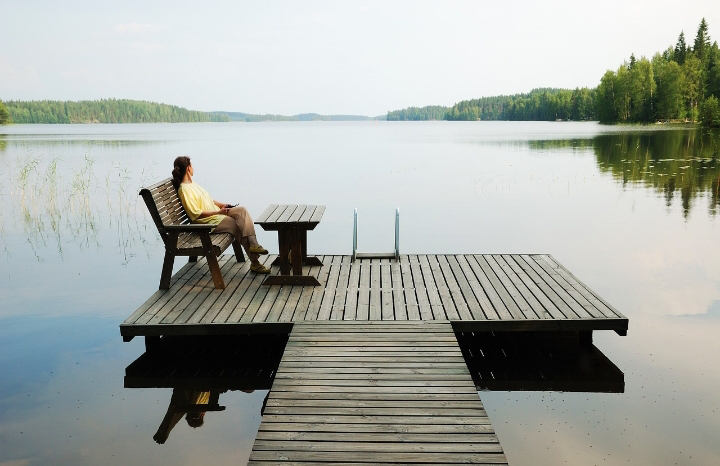lt is okay to Rest
It’s Okay to Rest, No Matter Your Age or Condition
By
Monica Saxena
| Wellness Blogger | Certified in
Holistic Health & Nutrition | Fully Accredited Professional Nutritionist |
A new slogan is trending: “Sitting is the new smoking.” It is something to raise awareness about being active in one's lifestyle to avoid chronic diseases such as hypertension, diabetes, and heart problems. However, at the same time, you need to slow down a bit and recharge yourself to allow your body to recover from a whole day of work. In a world that constantly pushes us to do more, we often forget the power of doing nothing, and that’s exactly what our bodies sometimes need.
Whether you’re a child, a working adult, or someone dealing with health conditions, rest is not a weakness—it’s essential. Let’s break down why embracing rest can actually make you healthier, happier, and more resilient.
In today’s productivity-driven world, those who start their day early with loads of work waiting for them often feel rest is a luxury—or worse, a sign of weakness. We glorify being busy, driven by the work at hand, staying active, and pushing through fatigue. However, there is a truth that often goes unnoticed: it is completely okay and necessary to rest, regardless of your age, lifestyle, or physical condition.
Why Rest Matters: It's Not Just "Doing Nothing"
There is a regressive opinion that old and sick people rest while young people need to be active and bursting with energy all the time. However, everyone needs some time to rest, even if you are a child or a young individual. For some, rest is just lying idly and doing nothing, but there is nothing to feel apologetic about, as each one of you needs to take rest to reboot your mind and body. Rest is actually an active recovery from a hard day of physical or mental activity, and you need to take it as something essential to sustain your mind and body. It’s the time your body uses to repair, replenish, and reset.1. Rest Reboots Your Brain
Resting time—whether it's a short break, quiet relaxation, or full sleep—has profound and positive effects on the brain. During rest (especially sleep), your brain processes emotions, stores memories, and clears out waste and clutter. Lack of rest can lead to poor concentration, irritability, brain fog, and even long-term cognitive decline. Even short periods of rest during the day, like closing your eyes, walking in nature, or lying and stretching your legs, can boost clarity and creativity. Taking 10-15 minutes of rest helps you improve your attention span, focus, and problem-solving abilities.2. Rest protects your heart and organs.
We need rest because the human body and brain are not built for constant activity. Rest is essential for recovery, balance, and optimal functioning. Rest lowers blood pressure and heart rate, giving your cardiovascular system time to recover. It supports hormonal balance and reduces inflammation, both key to preventing chronic diseases. Internal organs like the liver and kidneys rely on rest periods (especially during sleep) for detoxification and cell repair.3. Reduces Stress Hormones and protects mental health
Cortisol and adrenaline are stress hormones that spike with constant activity. Regular rest downregulates the stress response, keeping your immune system strong and your mood stable. Rest isn’t lazy—it’s an investment in your emotional resilience. It prevents burnout, anxiety, and irritability as our mind and body get the much-deserved pause. Emotional balance improves when we allow our minds to pause.4. Helps Muscles Heal and Grow
Whether you’re an athlete or someone doing basic movement exercises, your muscles recover and grow stronger during rest, not during activity. Overtraining without adequate rest can lead to injury, fatigue, and hormone imbalance. Even kids and teens need rest to support their growing muscles and bones. The immune system strengthens when the body gets adequate rest. Physical rest prevents injuries, fatigue, and inflammation.5. Essential for Chronic Illness and Recovery
If you’re dealing with illness, fatigue, or autoimmune conditions, rest is not optional—it’s part of the treatment. Rest helps the immune system repair, reduces flare-ups, and allows the body to use energy for healing.
It’s Okay to Pause, at Any Age
It's not just okay to pause at any age, it's essential. Pausing—whether through rest, reflection, or simply doing nothing for a moment—is healthy and important throughout life. In children, a pause helps avoid overstimulation and tantrums, as short rest times allow their brains to absorb new information and grow emotionally. It is generally said that for infants and toddlers, quiet time or naps are vital for healthy development.In the case of teenagers, they face academic pressure and hormonal changes at the same time. A pause between daily activities helps reduce stress, boost mood, and sharpen focus. It supports better sleep, which teens often lack.
In adults, resting helps manage work-life balance, reduce burnout, and improve productivity. It helps them to reflect during pauses and leads to better self-awareness and decision-making. Taking a pause between daily routines is vital for maintaining mental health, relationships, and creativity.
For older adults and seniors, resting allows time to process emotions, reflect on life, and stay mentally active. Gentle pauses in daily routine can improve heart health and lower anxiety. Mindful rest can also support memory and reduce the risk of cognitive decline. The universal truth is, no matter your age, resting is not weakness—it’s wisdom.
Types of Rest You Can Practice
Rest isn’t just sleep; in today’s age, many kinds of terms and types of rest are coined to suit individuals. Here are some forms you can include in your routine:
Physical Rest: This kind of rest involves small naps, lying down, and stretching
Mental Rest: Unplugging from devices like your laptop, smartphone, tablet, or gaming console and spending some quiet time and doing nothing is often called mental rest.
Emotional Rest: Releasing your mental clutter or anguish through journaling or talking to a friend is called emotional rest.
Creative Rest: Taking a break from problem-solving or planning activity is called creative rest.
Spiritual Rest: Meditation, nature walks, or prayer that arouses your spiritual self.
Rest doesn’t mean you’re lazy. It doesn’t mean you’re falling behind. It means you’re listening to your body—and that’s a powerful act of self-care. You don’t need to earn your rest. You only need to respect your body’s rhythms. So, the next time you feel tired, overwhelmed, or just not quite yourself, pause. Breathe. Lie down. Take that walk. Close your eyes. Let your body catch up to your soul.
Because rest isn’t weakness—it’s wisdom.










Comments